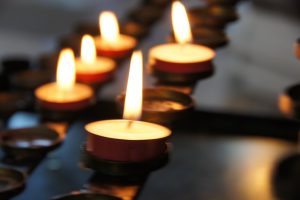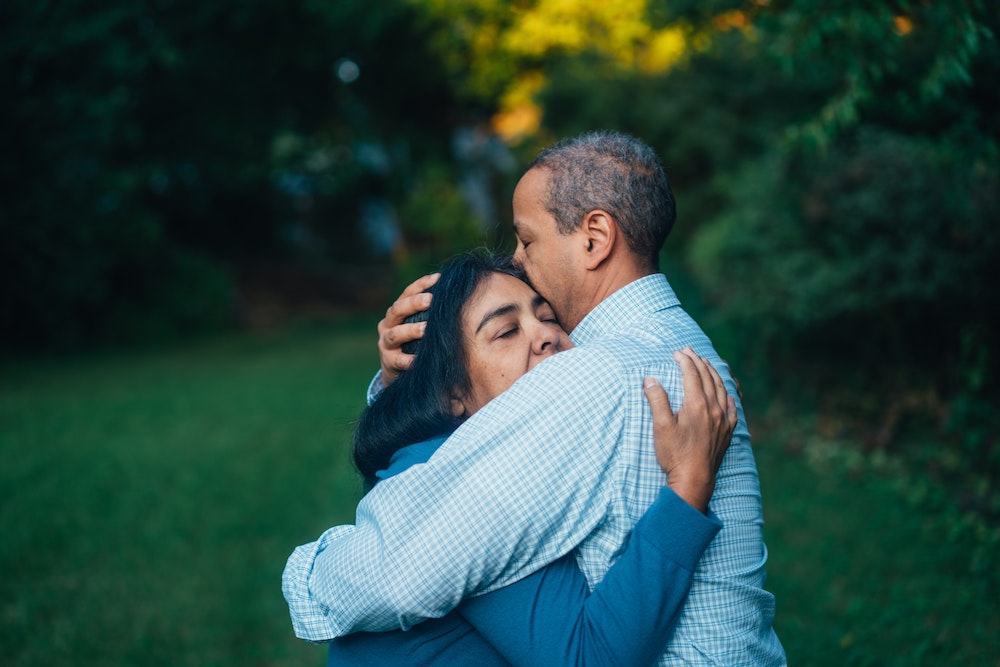Wrongful Death Attorney Los Angeles
If an accident has claimed the life of a loved one, you may be able to bring a wrongful death action against the person or persons responsible. Often, an “accident” that results in death could be due to someone’s negligent act. Wrongful death actions can arise under many factual circumstances, and the complexities of such a lawsuit require experienced legal assistance.
If you have lost a family member due to the negligent actions of another, you should contact a wrongful death lawyer in Los Angeles, California, at The Trial Law Offices of Bradley I. Kramer, M.D., Esq., as soon as possible to review the possible wrongful death case and the services that are available. We understand the pain and difficulties that you and your family are facing, and our personal injury lawyer will aggressively fight to protect your rights.
Wrongful Death & Personal Injury Lawsuits in Los Angeles Defined
A wrongful death occurs when someone is killed due to the negligent, reckless, or intentional act of another person (or entity). A wrongful death claim is brought by the surviving beneficiaries or dependents of the deceased victim and must be filed within two years of the victim’s death. The intent is to compensate the victim’s family members who have suffered economically and emotionally from the loss of a loved one with the help of wrongful death attorneys.
Families who suffer a wrongful death may seek damages for medical expenses, funeral costs, lost future earnings, and emotional pain and suffering. A wrongful death case can be complex, requiring skilled legal representation to navigate the legal intricacies and protect the rights of the bereaved family. Families dealing with such a tragedy should consult with experienced wrongful death attorneys who can offer guidance and support throughout the legal process, ultimately working to secure justice and financial relief.
Negligence
When trying to prove negligence in a wrongful death case, you and your wrongful death attorney must be able to prove that there was a duty to the victim, a breach of that duty, causation of the death, and finally, damages. The defendant must have been required to owe the deceased some recognized duty of care to prove duty. Although this can vary depending on the terms of the wrongful death cases, it is usually a duty to do something to protect or keep another person safe. Such a duty applies to the doctor-patient relationship, a contractual relationship, drivers that share a roadway, property owners, and even businesses that provide services to customers. If the duty exists, the plaintiff must then prove that the defendant breached the duty of care. Once the duty of care being breached is proven, the plaintiff must prove that there was causation from the breach of duty to the plaintiff, meaning did the defendant’s actions cause the victim’s death. Lastly, the plaintiff must prove that there were actual damages from all of the items above.
Recklessness
Recklessness can be proven almost the same way as negligence. However, it is far more egregious conduct that is required to meet this standard. Recklessness involves conduct that constitutes a conscious disregard for the life of another person, which is just shy of actual intent to cause harm but more significant than negligence. Negligence occurs when someone unknowingly causes harm (or, in this case, death) to another person, while recklessness is when someone knowingly takes a risk, putting another person’s life at risk.
There are two tests to determine recklessness: a subjective test and an objective test. A subjective test is where the accused knew or was believed to have been thinking when the act happened. An objective test is what a reasonable person would have or should have thought in the defendant’s position. Either way, if the person should have had a conscious awareness of their conduct and that such conduct could lead to the death of another person, that is usually sufficient to prove that a defendant was reckless.
Examples of recklessness include but are not limited to, drinking and driving, car racing in residential areas, substance use in public areas, carrying concealed weapons, keeping guns in easily accessible areas when children are present, and having unprotected sex when you are aware you may or do have HIV/AIDS. These are not the only examples.
Intentional Acts
Intentional acts can range from murder by a gunshot to a doctor who intentionally injects or administers the wrong medication to a patient. The legal definition of intentional acts is any time a person or party acts with an intention to cause harm to another person or party.
Intentional acts are also known as intentional torts and are not the same thing as criminal charges. Intentional torts pertain to civil law and involve one person intentionally causing harm, injury, or damage to another person or their property. Common examples include assault, battery, defamation, trespassing, and intentional infliction of emotional distress. When these events occur, the victim (or their surviving family members in the case of wrongful death) may sue for compensation against the alleged wrongdoer. It is the primary objective of intentional tort cases to compensate the victim and, in some cases, prevent the wrongdoer from doing the same thing in the future. Unlike criminal charges, where the state prosecutes the defendant and the penalty often involves imprisonment or fines, intentional tort cases focus on obtaining financial compensation for the victim’s losses.
Intentional torts are brought upon by a private citizen against another private citizen using a standard of “preponderance of the evidence” to prove their claims for monetary compensation from the accused. The government, on the other hand, will decide if someone was a murderer using a standard of “beyond a reasonable doubt.”
As an example, a private citizen can sue for wrongful death, regardless of whether the person is convicted of murder or not.
Consider the wrongful death case of O.J. Simpson, where he was found not guilty in the criminal trial brought by the State of California but was held responsible in the civil lawsuit filed by the Goldman family. In the civil case, Mr. Simpson was required to pay millions in wrongful death damages to the Goldman family as a result of their legal claims.
Example Causes of Wrongful Death Case Accidents in Los Angeles
- Medical mistakes
- Motor vehicle accidents
- Airplane, train, bus, boat, or other transportation-related accidents
- Criminal attacks
- Defective products
- Explosions
- Food poisoning
- Failure to keep property safe (dangerous conditions on someone’s property)
- Work-related exposure to dangerous conditions or substances
Wrongful Death Case in California- What Must Be Proven By a Wrongful Death Attorney To Win For Death Claim?
Wrongful death lawsuits can succeed under California law when the following elements are established:
- The death must be caused, in whole or in part, by the negligent conduct of the defendant
- There must be a surviving spouse, children, other legal dependents, or affected heirs
- The family of the victim must have suffered harm
- What Kinds of Damages & Settlement Amounts Can Be Recovered?
In a wrongful death lawsuit, a judge or jury will decide the amount of damages based on what is called “pecuniary injury.”
This means they will consider how much money the family members of the deceased lost in some of the following areas:
- Loss of future financial support
- Loss of inheritance
- Loss of the victim’s love, companionship, comfort, affection, protection, and moral support
- Loss of consortium (a spouse may sue for loss of the romantic/sexual relationship)
- Loss of the victim’s care and guidance as a parent
- Costs of funeral and burial expenses
- The family of the victim cannot recover damages for their own grief or sorrow. In some cases, wrongful death lawsuit settlement amounts, and punitive damages in California are recoverable if the victim survived the accident for any amount of time before death occurred. Punitive damages are also available when the wrongful death resulted from a homicide, and the defendant has been convicted of a felony.
Contact a Top Rated Los Angeles Wrongful Death Lawyer Today
When a loved one is killed by the negligent action of another, the surviving family members can be devastated by feelings of grief, anger, confusion, and uncertainty about the future. In such a traumatic time, it is essential that you contact an experienced Los Angeles wrongful death lawyer who can protect your legal rights and help you with the settlements while you cope with such a tragic loss.
The Trial Law Offices of Bradley I. Kramer, M.D., Esq. & the Los Angeles wrongful death lawyers will fight to hold the liable parties accountable and help you secure the wrongful death compensation that you deserve.




